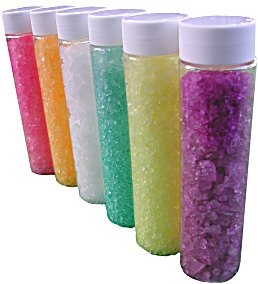
Illinois governor Pat Quinn signed a law on July 22, 2011 that makes it a criminal offense to possess bath salts. Bath salts are also known as MDPV, and cause a hallucinogenic experience with the user. A woman in downstate Illinois died from an overdose of bath salts within the last year.
Illinois is now part of a group of 11 states that outlaw the possession or distribution of the substance.
The possession of bath salts is now a felony offense. Bath salts are considered a controlled substance, and therefore, the minimum penalty is a Class 4 felony for which the offender can be sentenced to a 1 to 3 year prison sentence and also be forced to pay a fine of up to $25,000.
It is important to note that any person who legally purchased bath salts prior to this law becoming effective would now be in violation of the law if the substance is still in his or her possession.
Possession of bath salts that were purchased legally after the date of July 22, 2011, would be against the law.
Bath salts had previously been sold over the counter at convenience stores and gas stations. The containers are labeled as “bath salts” and typically had warnings such as “not for human consumption.” Nonetheless, it became known that consuming large quantities of bath salts causes a euphoric high similar to methamphetamine or ecstasy.
Bath salts are not the only drug outlawed by lawmakers in the state of Illinois. Illinois has outlawed K2 and Spice, each of which is a synthetic form of cannabis. K2 and Spice have also been known to cause hallucinogenic experiences. The criminal ban on K2 and Spice will not become effective, however, until January 1, 2012. The prohibition on bath salts is effective July 22, 2011. All these substances are now regulated by the Illinois Controlled Substances Act under 720 ILCS 570/402.
Although the possession or distribution of bath salts, K2 and Spice, is now a felony offense under state law, a person who is arrested for the first time for possession of these substances should be eligible for special section 410 probation. 410 probation allows the defendant to avoid a conviction and have the record expunged.